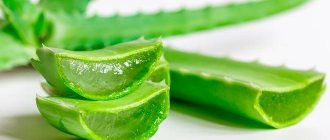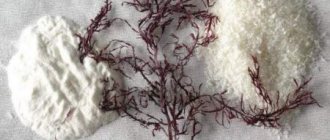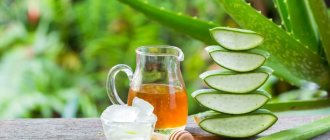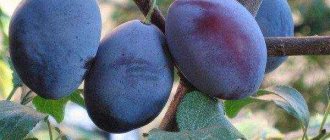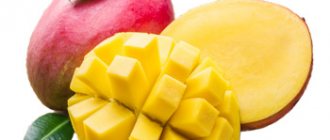Once upon a time, literally a couple of decades ago, kiwi was considered truly exotic for our country. Some people had a chance to taste its juicy pulp, while others didn’t even know what kind of berry it was. However, few people could afford to consume it regularly, because it was difficult to find kiwi on sale. Today, this exotic gift of nature, brought to us from countries with a tropical climate, can be easily purchased in a supermarket, market or small grocery store. And if you wish, you can include kiwi in your daily diet. But before you make that decision, it's important to know whether kiwi has any health benefits and whether you can eat the berry every day. In this article we will reveal the answers to these questions.
Kiwi: benefits and harm to the body
First, let's figure out what kiwi is. From a botanical point of view, it is the fruit of the tree-like vine Actinidia. Kiwi is a small dark green berry, often round and oblong in shape. People have long considered it a fruit. However, kiwi is a berry. There are a huge number of its varietal varieties. Depending on the variety, this sweet tropical fruit may have a more rounded or elongated shape. The kiwi we are used to has a velvety, fuzzy skin with dark brown hairs. But in nature there are also smooth varieties of this berry.
Once upon a time, a plant whose fruit is kiwi grew only in China. In those days, this berry was called “Chinese gooseberry.” Over time, kiwi has come to be appreciated in other parts of the world. Today kiwi grows in Thailand, Greece, South Korea, Japan, Iran, Israel, France, and Italy. Such an impetus for the spread of the plant was given by the New Zealand breeder Alexander Ellison. He not only brought it and began to cultivate it on an industrial scale in New Zealand, but also due to the external similarity of the fruit to the small kiwi bird that lives in the vastness of New Zealand, he gave it a new name - kiwi. More than half of the export of this berry comes from this part of the world.
Now let’s look at what this small juicy fruit consists of. Kiwi contains:
- Vitamins: A, B1, B2, B6, B9, C, PP.
- Minerals: iron, fluorine, chlorine, magnesium, manganese, sulfur, zinc, potassium, calcium.
- Cellulose.
- Saturated, polyunsaturated, monounsaturated fatty acids.
- Antioxidants.
- Starch.
Energy value per 100 grams of product:
- proteins - 0.8 grams;
- fats - 0.4 grams;
- carbohydrates - 8.1 grams;
- dietary fiber - 3.8 grams;
- water - 84 grams;
- ash - 0.6 grams.
The total amount of calories is 47 kcal.
Kiwi contains a lot of vitamin C (up to 180 mg per 100 grams). This berry surpasses even lemons in ascorbic acid content. It is not for nothing that people call kiwi a natural antipyretic and anti-inflammatory agent. But this is not all of its value for human health.
How to choose the right ripe fruits
The kiwi fruit should not be too hard: if it does not wrinkle a little when squeezed, the fruit is not yet ripe. The peel should not be compressed too much. If after squeezing there remains a mark that cannot be smoothed out, the flesh is too soft, the kiwi is overripe. Liquid discharge in the area of the stalk, the appearance of a gray or purple coating indicates decay processes.
You should smell the product. There should be a fresh, citrus-like aroma. If the fruit smells too sweet, it is overripe.
You also need to examine the skin externally. The color should be uniform. The presence of dark spots is a sign of overripeness. Wrinkles and mold indicate the beginning of rotting processes; The pulp of such fruits is dangerous to eat. If the fruit is not ripe, its skin will not be very fluffy and will have a greenish tint. If a person intentionally buys unripe fruits, he should avoid bruised ones with dark spots on the surface: they will ripen unevenly.
There is no need to pay attention to the size. Small kiwis may be edible, but large ones may be unripe.
Properties of kiwi
Kiwi is not just a sweet and juicy fruit. This is a gift of nature that has enormous benefits for human health. The following properties of kiwi are distinguished:
- clears the digestive tract of stagnation;
- removes “bad” cholesterol;
- saturates tissues with oxygen;
- eliminates swelling;
- prevents the development of urolithiasis;
- dilates blood vessels;
- normalizes blood pressure;
- effective as an auxiliary remedy for rheumatism;
- enhances intestinal motility;
- strengthens nerve tissue;
- activates and enhances brain activity;
- protects against viruses, pathogenic bacteria, fungi;
- has an analgesic effect;
- enhances collagen production;
- helps in weight loss;
- thins the blood;
- strengthens the heart muscle.
Kiwi is widely used in folk medicine. This sweet berry with a pleasant refreshing taste is effective for the prevention and treatment of diseases such as asthma, bronchitis and other diseases of the upper respiratory tract, reproductive disorders, immunodeficiency, osteochondrosis, arthrosis.
Features of the use of kiwi in cosmetology
The peel of the tropical berry is an excellent cosmetic product. Face masks are made from kiwi peel. You can simply wipe your face and neck with the peel - this is an excellent tonic that can rejuvenate the skin.
The juice of the pulp tightens and tones the epidermis, improves complexion. Thanks to vitamin C, collagen synthesis is activated, which increases the firmness and elasticity of the skin.
Mask based on cottage cheese and kiwi
A mask made from cottage cheese and kiwi is suitable for dry and normal skin. Use low-fat cottage cheese (1 tablespoon) and 1 tablespoon of berry juice. The mixture is applied to the face and washed off with water after 15-20 minutes. After the procedure, it is advisable to apply a rich caring cream to your face.
Kiwi pulp peeling
Small seeds in the berry pulp are used for gentle peeling. To make it, take 1 tablespoon of ground kiwi pulp and mix with 1 teaspoon of natural sour cream. The mixture is distributed over the face with smooth movements and washed off after 15-20 minutes. It is advisable to massage the skin with the mixture for 3-5 minutes with gentle movements.
Kiwi is a valuable gift of nature, bringing benefits both when consumed as food and in cosmetology. The berry is also used as decoration for a festive table or dish. The bright green, aromatic pulp of the fruit gives a wonderful taste sensation, lifts your spirits and strengthens your immune system.
Kiwi: benefits for women
Speaking about the beneficial properties of kiwi, it is worth talking separately about the effect of this berry on the female body. After all, it contains substances that can literally change health indicators in a positive direction. Thus, thanks to its richness in vitamin E, kiwi benefits the female body in preparation for conception, during pregnancy and after childbirth. The berry is also effective in preventing sudden hormonal surges during menopause. Kiwi is a natural cure for PMS symptoms. During pregnancy, kiwi can be used as a source of vitamins and minerals necessary to maintain the health of the expectant mother and the proper formation of the baby’s body. Kiwi prevents inflammation and blocks bleeding. With the permission of a doctor, in the absence of contraindications, this fruit can be included in the diet if there is a risk of miscarriage and after childbirth. It is also believed that kiwi is an effective remedy against female frigidity, restoring sexual function and strengthening the health of the reproductive system.
Kiwi is a natural source of beauty! To maintain youthful skin, elasticity and shine of nails and hair, it is enough to eat 1-2 ripe fruits per week. Kiwi is a useful component for a diet that helps you safely lose weight without depleting your body.
Kiwi: benefits for men
This berry is also beneficial for the male body. Men are more susceptible to daily stress than women. And kiwi helps make the nervous system resistant to its negative effects. By consuming juicy fruits on a regular basis, you can protect yourself from the risks of developing cardiovascular diseases. Kiwi has a beneficial effect on the male reproductive system and helps protect against prostate diseases and inflammatory processes in the genitals. Green fruits have a pronounced anti-inflammatory effect and help form healthy flora of the mucous membranes. Kiwi saturates the male body with vitamins and microelements, thereby increasing sperm productivity. Therefore, you can include the pulp of these juicy fruits in your diet during the period of preparation for conception. Kiwi is a good choice for sports nutrition. These juicy fruits energize, give strength, improve performance and promote a positive attitude.
Is it good to give kiwi to children?
Kiwi is a valuable product for children's bodies. During the period of development and growth, it is necessary to maintain a balance of vitamins and minerals, which this berry contains in abundance. The immunomodulatory properties of kiwi are also beneficial. Saturating the children's body with vitamins and bioactive substances, the berry provides reliable protection against childhood infectious diseases, as well as viral and colds. Kiwi also has a positive effect on the children's digestive tract. Its pulp is effective against constipation, it helps improve the digestive process and has a beneficial effect on appetite. But before you include kiwi in the diet of a child or adult, you should definitely read the list of contraindications and assess the potential harm.
Kiwi smoothie recipes
Just mix all the ingredients from the list, after grinding them in a blender. Smoothie recipes that are easy to make at home are given below.
Smoothie Recipe 1: Kiwi and Broccoli
- 1 medium banana, chopped
- 1 cup finely chopped broccoli
- 2 kiwi
- 2 small cucumbers
- 240 ml filtered water
Smoothie Recipe 2: Mango and Mint
- 3 chopped kiwi
- 5 - 6 mint leaves
- 1 mango finely chopped
- 1 small stalk of celery
- 240 ml filtered water
Harm of kiwi
The main danger of eating kiwi lies in the high levels of vitamin C. Ascorbic acid is a powerful allergen and can provoke a severe allergic reaction in people with individual intolerance to this component, as well as in those who suffer from food allergies.
Before use, you should consider the following list of contraindications:
- increased stomach acidity,
- gastritis and ulcers in the acute period,
- acute, chronic pancreatitis,
- some kidney diseases
- diarrhea,
- children up to 3 years old,
- breastfeeding period (with caution).
It is important to remember that kiwi contains carbohydrates. Kiwi is not contraindicated for people with diabetes, but it is necessary to take into account the amount of carbohydrates and the rate of their digestion (glycemic index).
It is not recommended to eat kiwi on an empty stomach. Ascorbic acid has an irritating effect on the mucous membranes of the digestive tract, which can provoke the development or exacerbation of gastritis or gastric ulcer. If you have chronic diseases or in any doubtful cases, you should consult with a specialist about the possibility of including kiwi in your diet.
Contraindications
Unfortunately, the usefulness of Chinese fruits comes with some contraindications. Unscrupulous suppliers sometimes deliver fruits containing harmful substances to Russia, so request documents for the shipment of fruit from the seller before purchasing. In addition, you should not overeat kiwi, no matter how healthy and tasty it is. This will harm the body.
For whom the fruit is contraindicated:
- People who are allergic to citrus fruits.
- Patients with diarrhea.
- With increased acidity of gastric juice.
- Turnip salad - recipes with photos. How to make a simple and delicious turnip or turnip salad
- Blood from the anus
- Red dots on the legs in the form of a rash. Causes of red dots and treatment, photos
How to eat kiwi
The ripe berries are peeled from the fleecy skin and the tender pulp is eaten. Kiwi can be sliced or cut into two halves and eaten with a dessert spoon. Ripe kiwi is sweet and juicy. There are small black seeds inside the fruit. They are not dangerous and can be eaten.
The consumption rate of kiwi for an adult is limited to 1-2 pieces per day. This is enough to provide the body with the necessary nutrients and not cause negative reactions.
Juicy kiwis are eaten plain or added to dishes. Traditionally, slices of ripe berries are an excellent addition to vegetable or fruit salads, smoothies, baked goods and desserts.
